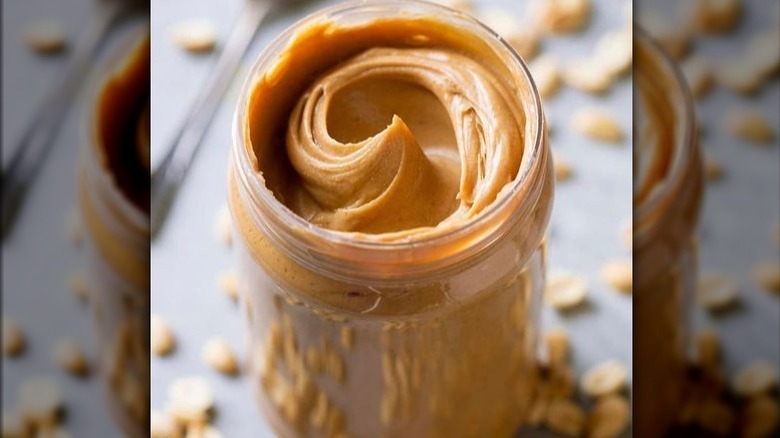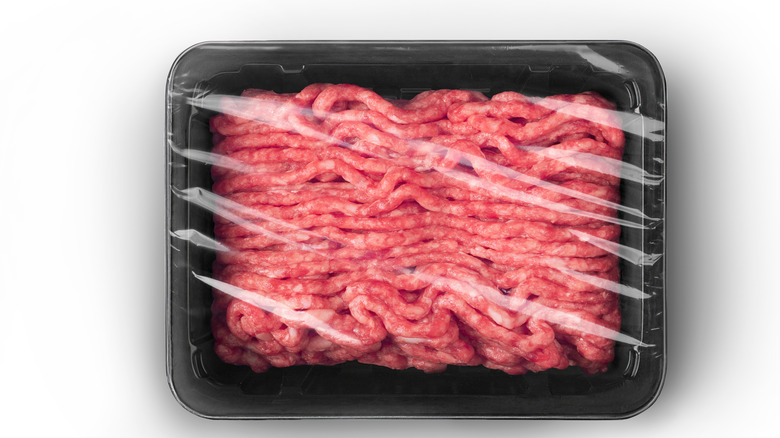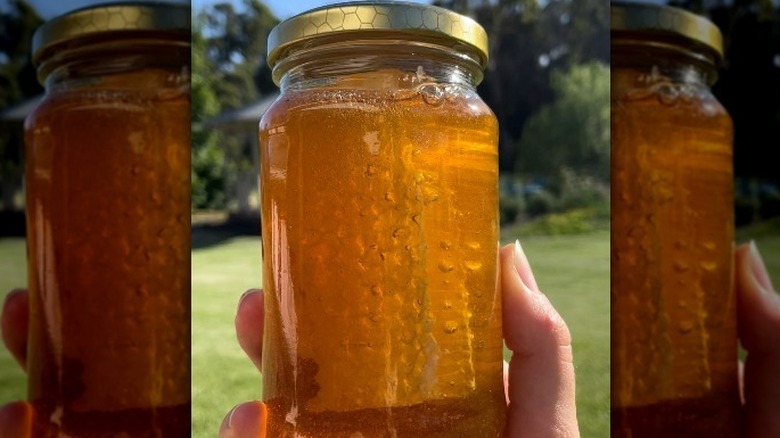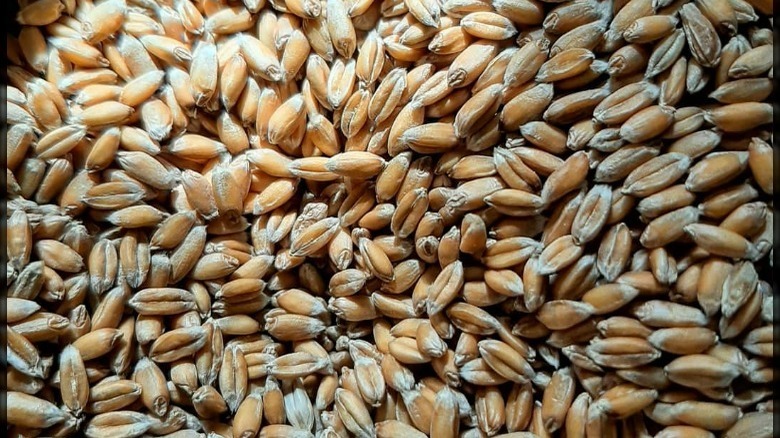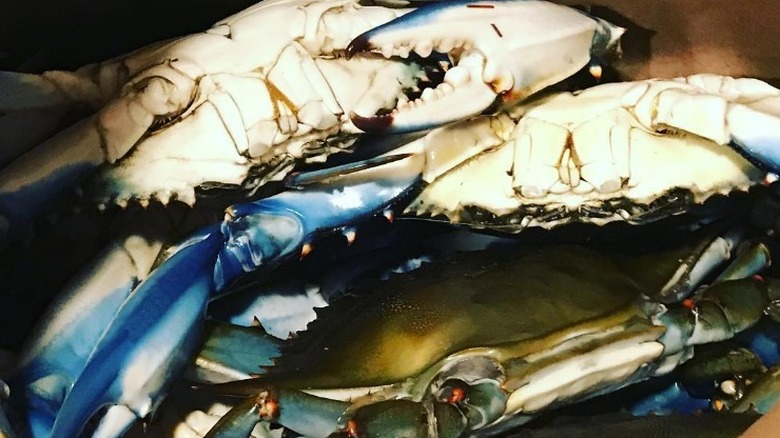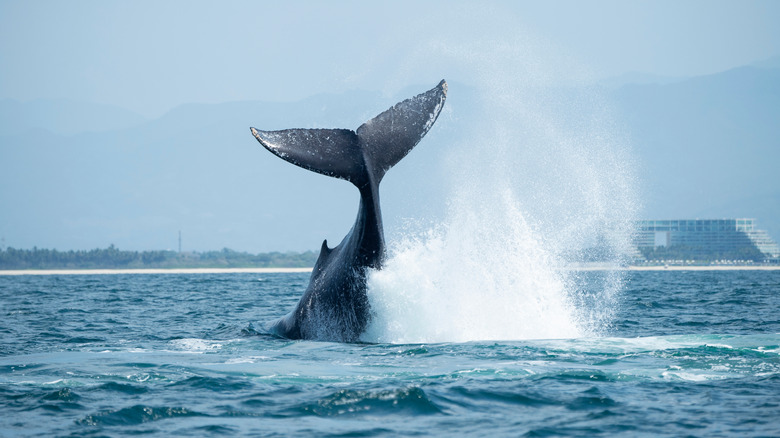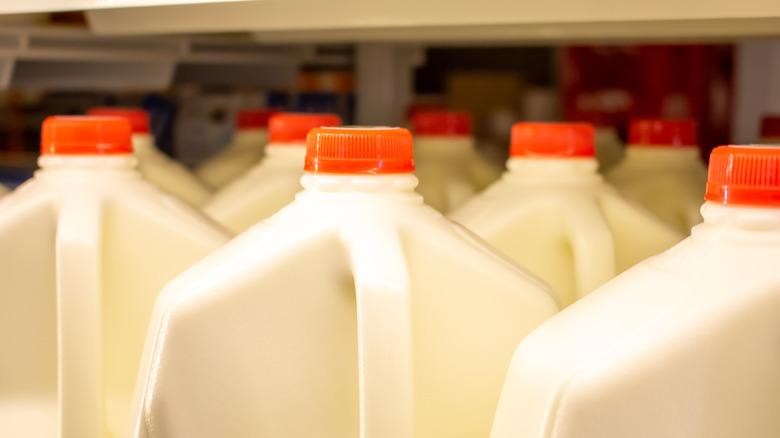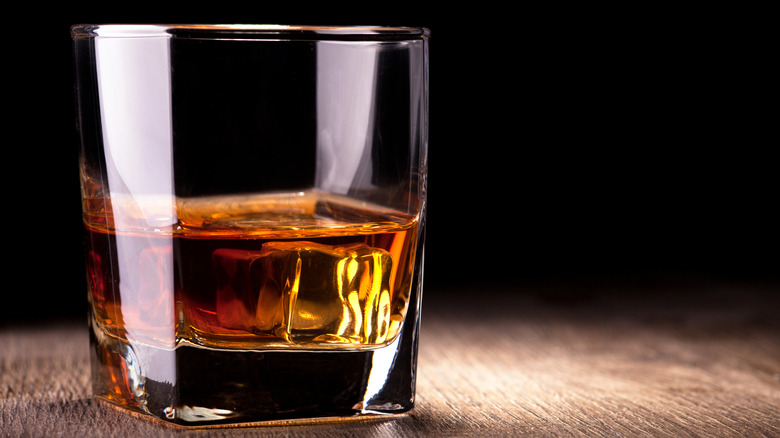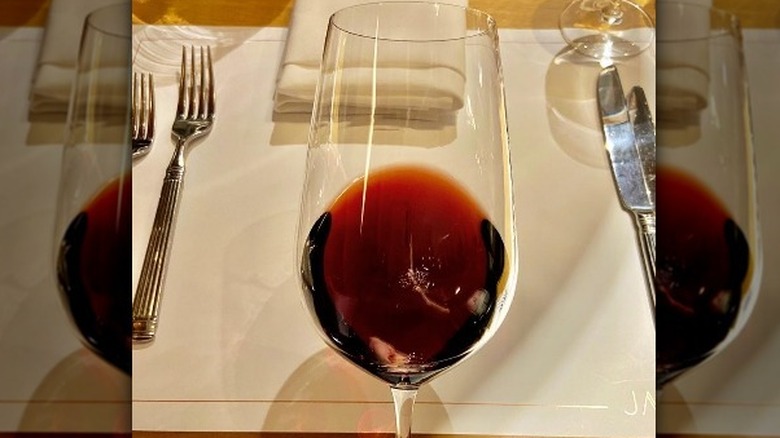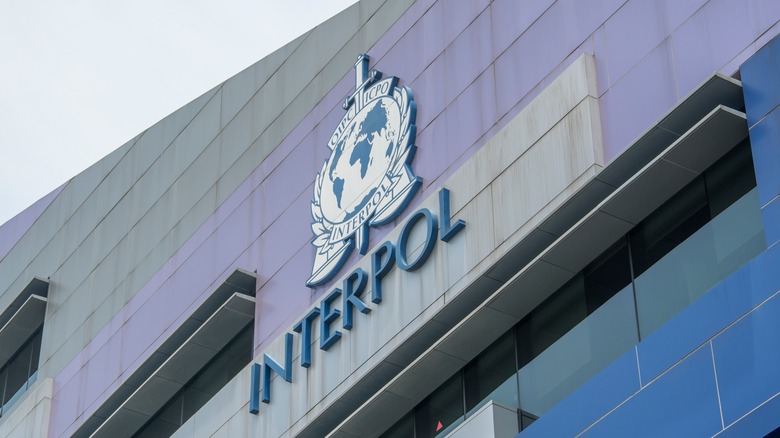The Biggest Cases Of Food Fraud Ever
The U.S. Food and Drug Administration defines food fraud as, "the act of defrauding buyers of food or ingredients for economic gain." Also known by its more technical term of "economically motivated adulteration," food fraud is what happens when a person or persons along the farm-to-table pipeline engage in a wide variety of dubious practices meant to obfuscate if not outright lie to the buyer. The buyer being anything from the manufacturer, importer, retailer, government, to the individual consumer. According to the FDA website, food fraud has been found to negatively affect 1% of the global food market. That might not sound like much, but keep in mind that's still around $10 to $15 billion a year on average, going as high as $40 billion.
What's truly dangerous about food fraud, aside from its economic impact, is the threat to public health. Mislabeled packages, ingredient substitutions, and counterfeiting quality products all carry massive risks to public health. We need food to survive and we consume one kind of product or another at least several times a day. Food fraud disrupts that delicate process of grocery shopping all for the sake of a few extra zeros in profit. Even today, food fraud continues to be a rampant problem for both the consumer's health and economic stability.
The peanut butter salmonella outbreak
In 2009, peanut butter infected with salmonella caused a deadly nationwide outbreak. The aftermath led to the very first federal suit in regards to food safety and food fraud of a company executive.
Though the FDA did trace the tainted peanut butter to the now-defunct Peanut Corp of America facility in Georgia, they still issued an advisement for the public to refrain from purchasing or consuming products containing peanut butter or paste as it was unknown whether or not they contained peanut product manufactured by Peanut Corp. Stewart Parnell, the former CEO, was charged and convicted of 76 federal counts of knowingly shipping out peanut products that he knew were tainted. Charges included fraud, obstruction of justice, and the sale of adulterated food. This was also a particularly rare occurrence where a corporate executive was held accountable for a food-borne disease outbreak.
Between 2008 and 2009, the salmonella outbreak left 714 people sick and nine dead. In 2015, Parnell was sentenced to 28 years in prison for his actions. At the time, it was considered the harshest penalty the U.S. court ever handed down to a corporate executive. Parnell is expected to be freed sometime around the year 2043.
Kangaroo and horse meat sold as beef
In 1981, kangaroo and horse substituting for beef was being exported to the U.S. from Australia. The international scandal exposed massive malpractice in the Australian export market, and lax performance from the Australian government overseeing regulation.
Dubbed by members of the Australian parliament as, "Slaughtergate," U.S. officials found in a San Diego meat processing plant that packages labeled as beef exported from a Melbourne-based company actually contained meat from both horses and kangaroos. The scandal and investigation revealed rampant illegal practices within Australia's exporting industry as well as the larger Australian authorities not only being fully aware of what was happening, but also being apathetic in regards to enforcement.
While the manager of the Melbourne exporter was arrested, the real change came with sweeping improvements to Australia's export laws. The new legislation did away with the Bureau of Animal Health, and instead replaced it with a Royal Commission, and added an Export Inspection Service to the Department of Primary Industry. Within four years of the new legislation, all exporting malpractice significantly decreased.
The honey smuggling ring
Considered at the time to be the largest instance of food fraud in the U.S, in 2008 both the U.S. Department of Commerce and the Department of Homeland Security began an investigation into the illegal importation of adulterated honey. Several members of the German-based ALW Food Group were charged with mislabeling and adulterating imported low-quality honey. Because the honey was harvested by machines rather than bees, it was left with a pungent smell and a taste described as, "[like] sauerkraut," which they dulled with a liberal use of sugar and syrup. In 2013 more charges were brought by the U.S. Department of Justice against several defendants from Honey Holding I, LTD for illegally importing honey from China that was adulterated with antibiotics not meant to be used in honey.
In both instances, both ALW Food Group and Honey Holding were able to avoid up to $80 and $180 million in "anti-dumping duties," respectively. Anti-dumping duty is defined as a domestic tariff on foreign import commodities considered to be priced below fair market value. Basically, it's meant to protect local markets from being undercut by foreign products being "dumped" on the domestic market.
$120 million fake organic grain scam
Since 2020, the organic market has grown to over $61 billion yearly, which makes it very susceptible to food fraud. One of the largest scams took place in 2019, where over $120 million worth of ordinary grain was deceptively sold as organic. Randy Constant sold millions of dollars worth of grain he claimed came from his own organic fields. In truth, Constant purchased grain that was either grown somewhere else, sprayed with non-organic compliant chemicals, or was a mix of organic and non-organic grains. The majority of the fake organic grain sold went to feed for organic livestock farmers, which they then sold to consumers as organic meat.
There are rules and guidelines that must be followed for any food to be certified as organic. However, the New Yorker's piece on the scam and on Constant revealed that he took advantage of the organic market having no way of determining outright if a product was really organic. At his trial, Constant was found guilty and was ordered to return the majority of the money as well as sentenced to 10 years in prison. The presiding judge stated that Constant, "caused incalculable damage," with his long-running multi-million dollar organic con.
Made in the USA crab meat
Seafood is especially susceptible to food fraud, in part this is due to the massive amount of fish that is traded regularly. In a study by The Guardian, over 9,000 samples of seafood taken from multiple sources from 30 different countries showed that 36% were mislabeled. With the amount of complexity of going from fishing boats (or farms) to the supermarkets, it can be a simple yet lucrative decision to label one kind of seafood to something more valuable.
Case in point, in 2019 a North Carolina-based seafood company was found to have intentionally mislabeled $4 million worth of foreign purchased crab meat as a "Product of the USA." Phillip R. Carawan, the former president, CEO, and owner of Capt. Neill's Seafood entered a guilty plea to selling over 179,872 pounds of the mislabeled crab meat to wholesale clubs between 2012 and 2015. According to the then Acting U.S. Attorney for the North Carolina Eastern District, Carawan's scheme allowed him to have a major economic advantage over competitors, as his mislabeling caused the market value of domestic blue crab to artificially deflate for domestic suppliers and local fishermen.
Endangered whale meat served as sushi
While not a multimillion-dollar scandal, it does go to show that food fraud can happen in places as small as a local restaurant. The restaurant in question was a popular Santa Monica high-class sushi eatery called "The Hump." A sting operation conducted by the U.S. Fish and Wildlife Service and U.S. Customs confirmed a tip-off they received from informants. That the 12-year-old restaurant was in fact, serving whale meat as part of its menu. This was done by intentionally mislabeling the invoice as, "fatty tuna," as it was delivered to The Hump.
The informants who tipped off law enforcement were the documentary filmmakers of "The Cove," an Oscar-winning film about illegal dolphin hunting. They set up their own operation where they posed as customers with hidden cameras and purchased the whale meat, apparently at $2,000 a serving. They were able to take food samples for testing where it was confirmed to be whale meat. Specifically, it was meat belonging to the Sei whale, which is on the endangered species list.
While charges were brought against the sushi chef in charge at The Hump, as well as its parent company, due to outrage and protests, the restaurant voluntarily closed its doors.
Cow hearts were sold to US prisons
There are forms of food fraud where perpetrators will even try to defraud the federal government with bogus food. In 2019, two executives from a meat packing plant were charged and pleaded guilty to selling over $1 million in adulterated beef to the Federal Bureau of Prisons. The adulterated meat contained processed cow hearts, which according to the FDA is not considered part of ground beef. The accused were able to circumvent USDA inspections by hiding the cow hearts offsite during the inspection, only to then process them at night and add them to the already inspected ground beef. In their plea, both executives copped to selling more than 775,000 pounds of adulterated beef to 32 prisons across 18 states. This, naturally, is in violation of the Federal Meat Inspection Act of 1906, which states that it is illegal to adulterate or misbrand meat being sold as food.
In 2020, a report from a watchdog group that investigated the adulterated beef case as well as similar cases, stated that the Bureau for Prisons shares part of the blame due to a lack of controls and policies that can protect prisoners from eating contaminated food.
The Chinese milk scandal
In 2008, China experienced one of its most deadly and consequential acts of food fraud to date. The Sanlu Group, one of the larger dairy producers in the country, had adulterated powdered milk with melamine, an industrial compound used in the creation of plastic materials. The compound is toxic when ingested and is known to cause kidney stones. Sadly, the powdered milk was used as baby formula, which led to 300,000 infants in China becoming sick. Of those illnesses, six infants would die due to kidney damage. However, even as the Sanlu Group was being investigated, it was revealed that other domestic dairy farms were also engaging in similar practices.
Not only was it a public health nightmare, but it also greatly damaged China's overall reputation with food exports. Especially in regard to dairy products, as the majority of Chinese parents still refuse to give locally produced milk to their infants. In 2009, just one year after the scandal, China's market saw a massive surge in foreign dairy products, with over 100 different brands hitting grocery stores. To this day, the vast majority of China's dairy comes from foreign imports from the U.S. and the EU.
Spain cracks down on whiskey fraud
A growing and lucrative trend in food fraud is the production and distribution of counterfeit whiskey. There's a constant high demand for top-shelf whiskies, especially among collectors and whiskey aficionados. In fact, the most expensive whiskey put up on auction sold for nearly $2 million!
With such market demand, a fancy looking bottle with a top-shelf quality brand can carry the risk of being filled with the equivalent of swill. Such an enterprise was halted in 2020, when Spain's Guardia Civil and National Tax Agency broke up one of the largest criminal networks illegally producing and selling knockoff whiskey.
Among the items seized by authorities included 300,000 whiskey bottles, 18,400 caps, 171,200 fake tax stamps, and over 27,000 boxes all bearing the logo of an unnamed (but apparently popular) whiskey brand, and all were counterfeit imports. According to Food Safety News, the haul taken in was estimated to be, from euros to dollars, over $970,000. The actual damage done to the unnamed brand's market value was estimated to be around $4.8 million.
Italian wine tainted with methanol
One of the most common methods of adulterating alcohol is by "cutting it," with methanol, a cheap, easily available, and highly toxic solvent used in antifreeze, pesticides, and even as an alternative fuel source. It should be noted that a small amount of methanol does occur naturally in the winemaking process. However, a high enough dose of methanol can cause blindness and even death. Such illegal methods have been done for decades, but one of the largest and most damaging methanol-related scandals devastated the reputation of Italian wine.
In 1986, 24 people in Italy died after drinking wine that contained lethal levels of methanol. An investigation by Italian authorities revealed that over 300 brands were adding large doses to cut their cheaper wine. The Italian government actually declared a state of emergency and moved to put a stop to the sale of wine, domestically and internationally. The scandal, as well as the prevention of further sales, caused a 39.2% drop in exports worldwide. While there were no reports of tainted wine reaching other countries, an Italian wine magazine called it, "the worst year in the Italian wine industry this century."
Hawaii's lawsuit against counterfeit coffee
Food fraud is also one of those crimes that can appear in a wide spectrum. While some foods can be mislabeled, counterfeited, and adulterated, there are times when food can be misrepresented. These include instances of claiming a food is halal or kosher when it isn't, to changing a food's country of origin.
Such was what happened in 1999 when Hawaiian coffee farmers brought a class-action lawsuit against a California wholesaler and several major coffee brands. A settlement was reached of $1.26 million going toward the 650 participating farmers, who in their suit alleged that the wholesaler, Kona Kai Farms, along with several major coffee retailers such as Starbucks and Costco, falsely labeled their coffee as originating from Kona. Kailua-Kona is located on the West coast of Hawaii island. Due to its high elevation and weather, the beans grown in Kona are well regarded among coffee drinkers worldwide. However, because 20 million pounds of falsely labeled "Kona coffee," was sold on the market for lower than the average price, this artificially depressed the market for actual Kona coffee, which led to a major loss for Hawaiian farmers.
Operation OPSON has rooted out food fraud around the globe
Along with massive health risks, food fraud takes an estimated $30 to $40 billion out of the global food marketplace every year. It's been so prevalent that a global operation was formed in 2011 between multiple law enforcement agencies, national food regulators, and private companies. Spearheaded by Interpol and Europol, "Operation: Opson," ("opson," being Greek for "food,) is a yearly task force co-op between participating countries to "remove counterfeit and substandard food," from the market and prosecute the offending groups involved.
Since its inception, Operation Opson has continually grown and now incorporates 72 countries in their global fight against food fraud. To date, some of those countries include the U.S, U.K, the majority of the EU, as well as countries in Africa, Asia, and the Pacific Islands. Between December 2020 and June 2021, Operation Opson X removed 15,000 tons of counterfeit or possibly dangerous food and drink worth $60 million, with 1,000 criminal cases opened across multiple countries.

